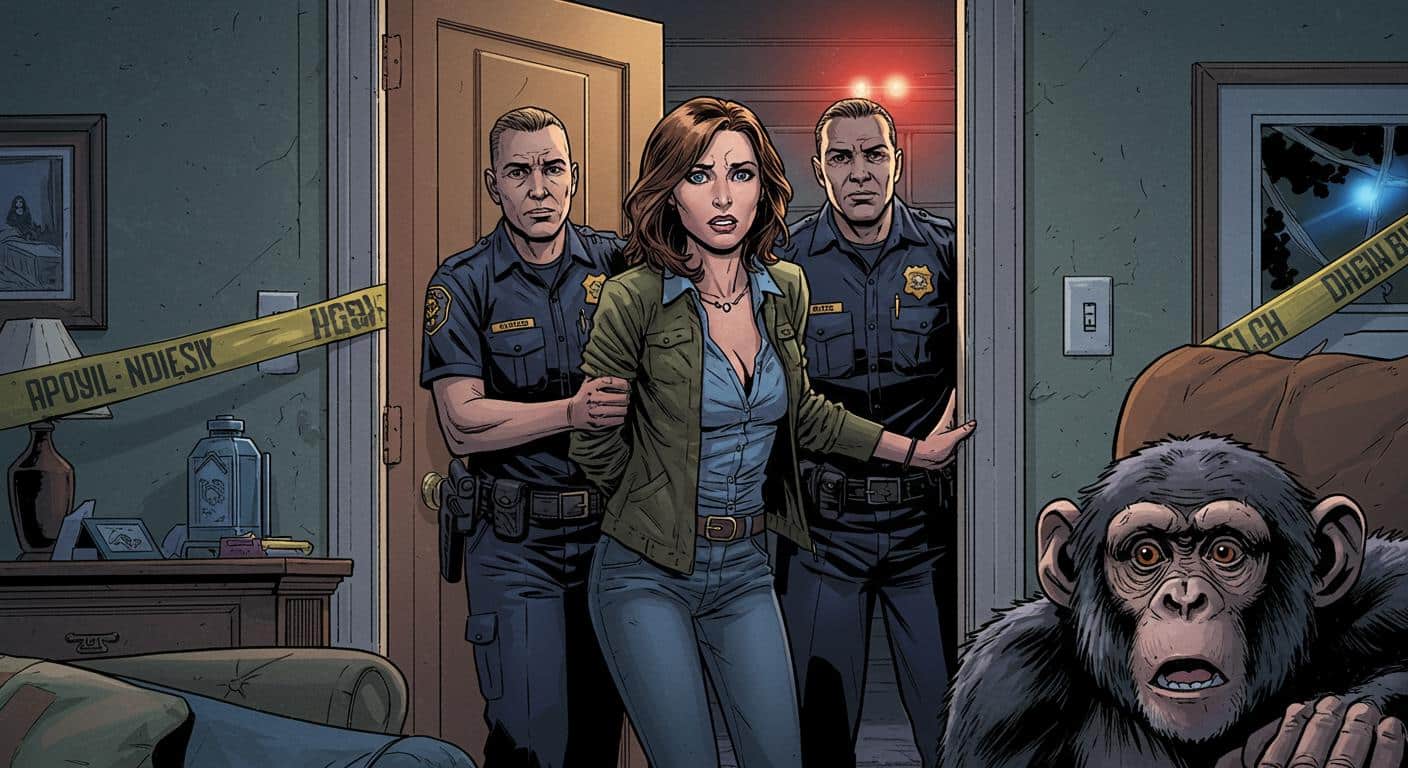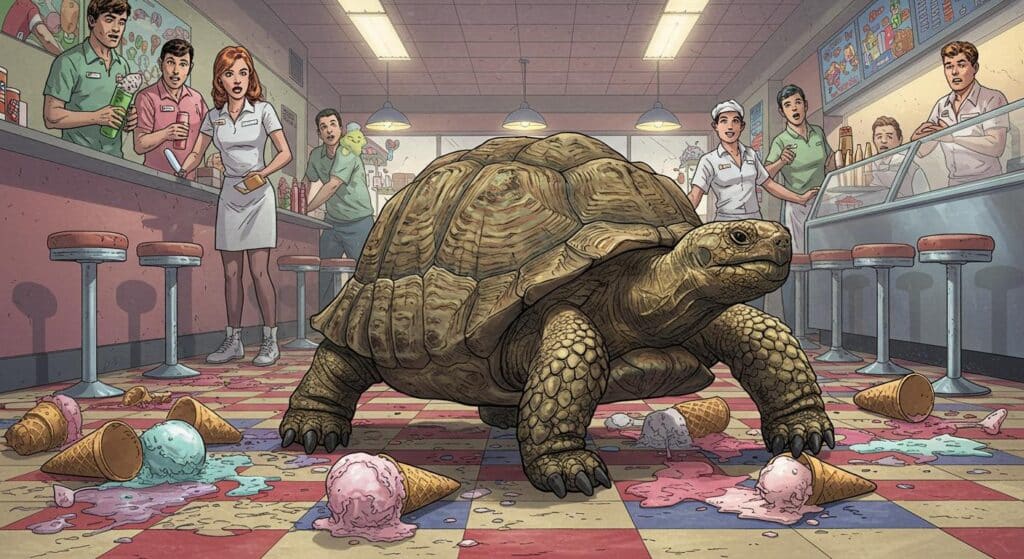Sometimes, a story manages to leap over the bar of “strange” and land somewhere in the realm of “what, again?” The saga of Tonia Haddix—the woman whose legal docket could double as a screenplay outline for Animal Planet: Undercover—is a prime example. Haddix, previously best known as the central, wig-sporting figure in HBO’s “Chimp Crazy” documentary, has now cemented her legacy as someone for whom the phrase “can’t stop, won’t stop” apparently applies most to the keeping of illicit great apes.
Déjà Zoo
According to St. Louis Public Radio, federal prosecutors reported finding a mature female chimpanzee in a cage in Haddix’s Camden County home earlier this month. Officers, serving a search warrant on July 9, uncovered yet another unsuspecting participant in the saga of clandestine chimphood—a full two years after Tonka, a previously “lost” chimpanzee, was discovered alive in a basement. Haddix’s arrest occurred ten days later on July 19. When she appeared in court regarding these new allegations, she wore a jail-issue jumpsuit and was notably missing her trademark blonde wig.
Haddix had already pleaded guilty earlier this year to three felonies for lying about Tonka’s whereabouts, with her previous legal drama also covered by St. Louis Public Radio. The story of Tonka involved Haddix falsely claiming the animal had died when, in reality, authorities later discovered Tonka in a basement cage. According to the same outlet, these prior false statements resulted in counts of perjury and obstruction of justice.
The latest discovery of a hidden chimp is alleged to have directly violated the terms of Haddix’s bond, which had repeatedly and explicitly prohibited her from owning any chimpanzees. St. Louis Public Radio notes she was also required to report any police visits or searches to her pretrial services officer, which she failed to do. Prosecutors assured the outlet that the newly removed chimpanzee is now in a “safe location.” For the time being, Haddix is experiencing her own form of enclosure, this time courtesy of the justice system.
The Recurring Basement… And Consequences
Coverage in the St. Louis Post-Dispatch recounts Haddix’s recent history: her exit from the St. Louis courthouse after admitting to two counts of perjury and one count of obstruction for fabricating the story about Tonka’s death. The Post-Dispatch documents how her penchant for keeping chimpanzees in basements is, at this point, indisputable and oddly specific. It’s a quirk that might read as comedic if the reality weren’t so stark.
St. Louis Public Radio reports that animal rights activists take a far darker view. People for the Ethical Treatment of Animals (PETA), who have been involved with Haddix since a 2016 civil suit over the Missouri Primate Foundation, stated through their general counsel Brittany Peet that Haddix “locked a highly social chimpanzee in a tiny basement cage, without the companionship of other chimpanzees, appropriate care, or even the ability to feel sunlight on her skin.” PETA called for Haddix to receive a lengthy prison sentence, asserting that “this person clearly won’t stop hurting animals unless and until she’s facing a long stay behind bars herself.”
Finale (For Now): An Unmistakable Pattern
As detailed by St. Louis Public Radio, the legal battle’s roots stretch back to the Missouri Primate Foundation, which housed Tonka and other chimpanzees once bred for entertainment. Animal rights groups challenged the facility for alleged violations of the Endangered Species Act, after which a 2020 settlement required Haddix, as the operator, to surrender all chimpanzees. The outlet describes how, when transfer time arrived in 2021, Haddix falsely claimed Tonka had died—leading to the infamous basement discovery in 2022. St. Louis Public Radio also notes that Tonka is now living under much different circumstances at a sanctuary in Florida, enjoying a life at the Center for Great Apes.
Court records cited in St. Louis Public Radio indicate that Haddix, beyond facing federal sentencing on August 7, has been ordered to explain to a state court why she and her husband have not turned over requested financial records related to their various companies, with a hearing set for August 5. The legal consequences, it seems, are multiplying.
So the old adage “if at first you don’t succeed, try, try again” seems to have become, for Haddix, “if at first you get caught… try a different basement?” One has to wonder if there’s a support group for this very specific compulsion.
In the end, this story is a curious cocktail of defiance, obsession, and the types of animal-related legal entanglements even a library veteran rarely sees. St. Louis Public Radio documents that the chimpanzees finally seem to be reaching sanctuaries; as for the humans, it’s now up to the courts to decide their next destination. Is this the closing chapter, or yet another intermission in the ongoing, and evidently very literal, “Chimp Crazy”?







